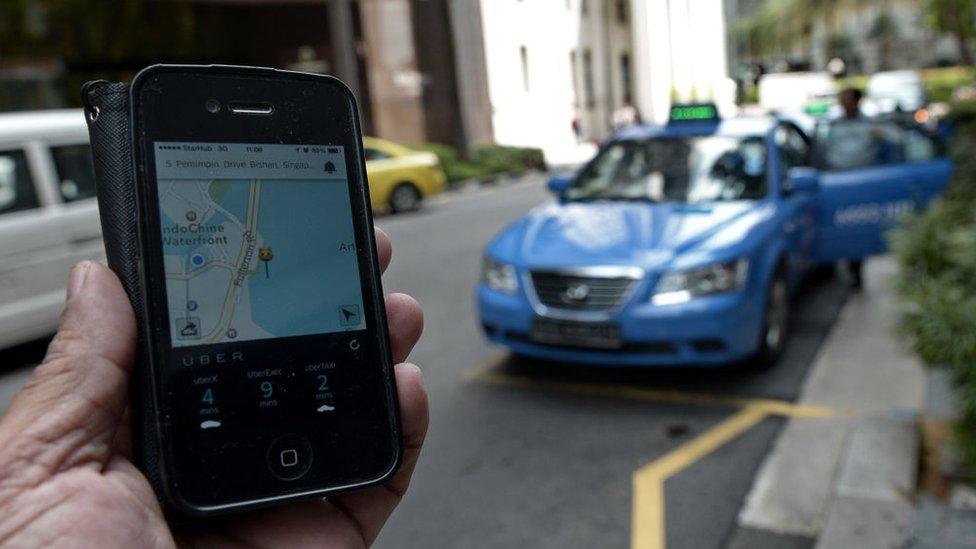Why Grab boss sees a world where 'local champions' rise
- Published
"We're not sellers, we're buyers"
The first thing you notice about Anthony Tan is that he wears a big silver cross around his neck. And that he has great skin.
He credits his strong belief system for much of his success, and even in his language, the word "serve" comes up numerous times.
"If there's any one thing I would love that people remembered me for would be hey, Anthony… was a true servant leader," he told me in his offices in downtown Singapore.
Mr Tan may be humble in his speech, but there's no mistaking his confidence.
Fresh from his latest victory of driving out global giant Uber from South East Asia, he tells me that this deal is not just a win for Grab, but a "win for South East Asia."
"A lot of my start-up friends said 'Dude, you showed so many South East Asians what is possible'", he says, beaming.
The narrative of the South East Asian local champion emerging on the global stage is something I hear a lot throughout my time with the Harvard business graduate.
Mr Tan is obviously proud of his Asian roots, and feels they've given him an advantage.
"We can actually create lots of value, economic value," he says, speaking of his victory over Uber. "[And] show to the world that South East Asian companies can emerge as winners."
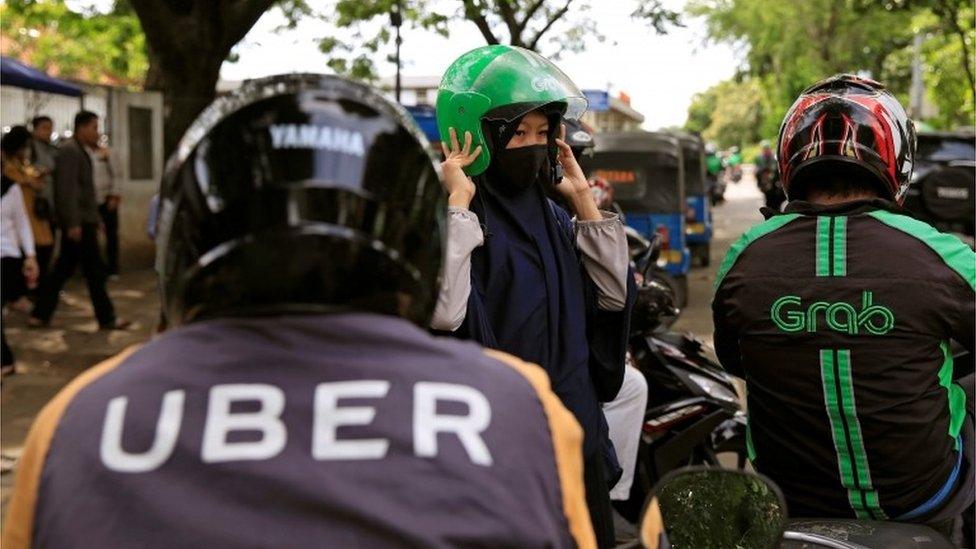
Anthony Tan is not your usual start-up kind of guy.
He's from a privileged background, one of the heirs to the Tan Chong Motors dynasty.
Entrepreneurship is in his blood. His grandfather started a taxi firm in Malaysia decades ago, and grew it into a household name.
"There's this sense of... there's a chip off my shoulder," he mused. "Always being called somebody's grandson or somebody's son. [And thinking] if they can do it, why can't I?
"My uncle said it very well. 'Your grandfather had no money, no education, no people. Nobody wanted to work for him. And yet he could build a great business. What's your excuse?'"
Payment potential
That drive to succeed is evident in the rapid pace of Grab's expansion.
In just five years, it has gone from a simple ride-hailing app to now being the dominant player in South East Asia in sectors that stretch way beyond transport.
With operations in eight countries and 196 cities in the region, it has over 90 million downloads of its app amongst users in South East Asia, and close to three million drivers.
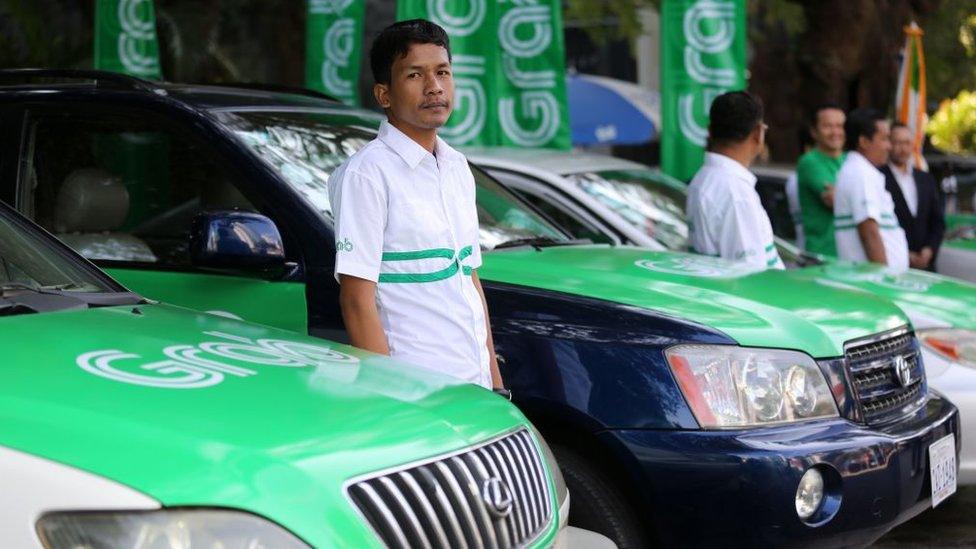
Grab operates in 190 cities in South East Asia including Phnom Penh
But the endgame for him isn't ride-hailing. Anthony Tan has a much bigger ambition - he's targeting the potentially $200bn payments market in South East Asia.
"We have the two largest use cases which is transportation and food," he tells me. "We can leverage it for payments... for financial services."
And he already is.
Grab Pay is the company's payments app that's being rolled out across South East Asia.
In developing markets like Indonesia, the trick is getting offline customers to go online.
Grab does this by working with a multitude of agents, from shopkeepers to street stall owners who double up as the human interface of the app.
"Only one in four people have a bank account in South East Asia," he says. "Something like one in 10 are using a credit card in the region… so it's clearly a real problem where the masses aren't being served."
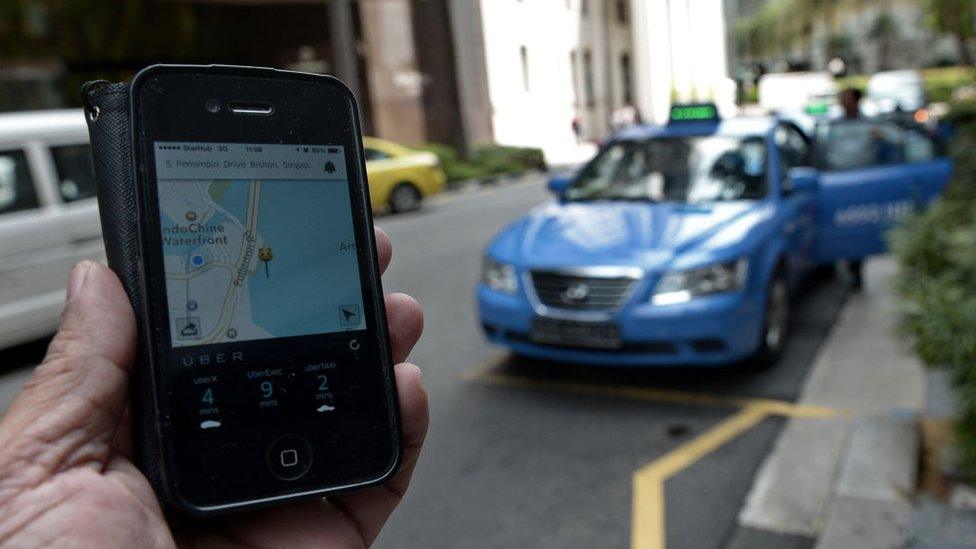
But going cashless in a region obsessed with cash, is going to be tough.
And that's just one of his problems. Competition from smaller, snappier rivals like Indonesia's Go-Jek, regulatory concerns, and accusations that ride-hailing adds to traffic congestion are just some of the challenges he has to deal with.
Still, that's not hobbling the spring in his step, which the Uber victory has clearly given him.
"I think a lot of people discounted South East Asian companies," he told me.
"We kept saying 'Guys, we can build an Alibaba, a Tencent out of South East Asia.'
"That time has come where there's enough monetary capital, there's enough grit and hunger. We really have shown the world that regional champions can emerge."
You can watch my profile of Grab including the Anthony Tan interview on BBC World News in the Asia Tech Titans series .
- Published26 March 2018
- Published5 April 2018
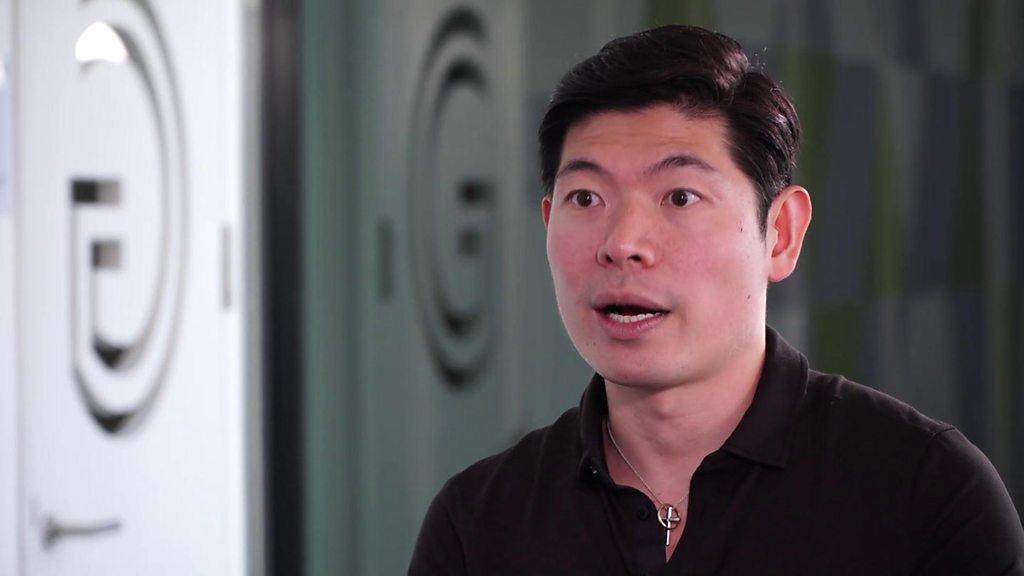
- Published26 March 2018
